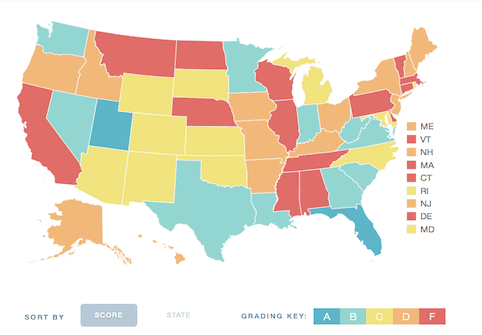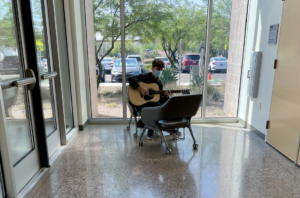Almost Half The States Improved Digital Learning Policies in 2013

The nation’s digital learning health is improving. A new report card out today shows that 473 bills were introduced last year and 132 were enacted resulting in 22 states improving their grade on the 2013 Digital Learning Report Cards.
The report card weighs state policies against the 10 Elements of High Quality Digital Learning –developed and introduced in 2010. The intent is “to provide an annual summary of state laws and policies to better understand what states are doing to create a policy ecosystem that embraces new education models, promotes the use of technology to meet the needs of all children, and breaks down the barriers that constrain student-centric innovations.”
Utah and Florida are the two A rated states given the extensive access to full and part time online learning available to students.
Arkansas and Nevada made notable gains in 2013. Arkansas emphasized increasing student eligibility for digital learning, making huge strides in policy with HB 1785 in April. Nevada focused on removing access restrictions to digital learning with SB 58.
The report includes great background on the potential benefits of the shift to digital learning. Big trends noted include course choice,competency-based learning, and portable records.
The report details a variety of sources of opposition to online learning. There are still many bans and barriers to online learning. Recently there was a call for zip code boundaries for online learningwhich defeats the purpose of anywhere anytime learning.
There is plenty of capacity to offer every student in the U.S. full and part time access to great college prep courses, lots of world languages and hundreds of electives. States and districts could simultaneously increase the quality and number of offerings and save enough money to reinvest in core instruction. Great teachers would have the opportunity to extend their impact (and, potentially, their earning power).
The DLN Report Card is an important contribution to the field and a great resource for policy makers. Join the conversation at #DLNprogress.
Digital Learning Now is a Getting Smart Advocacy Partner.







0 Comments
Leave a Comment
Your email address will not be published. All fields are required.